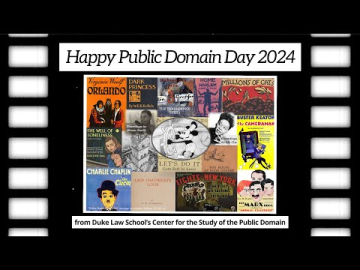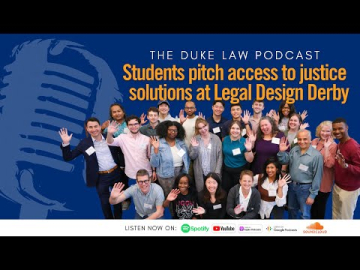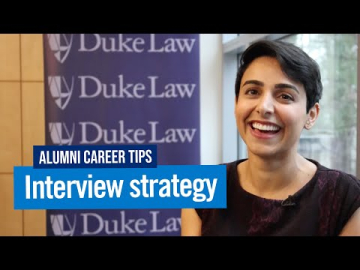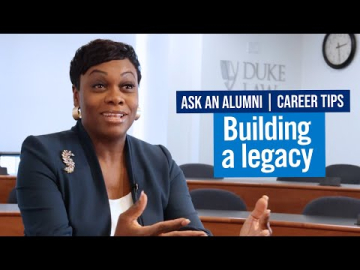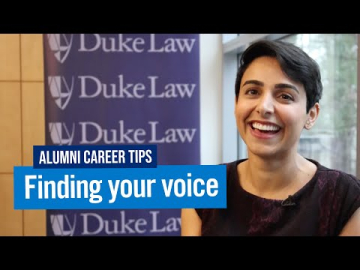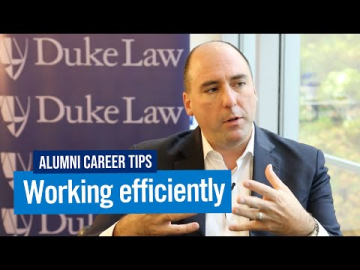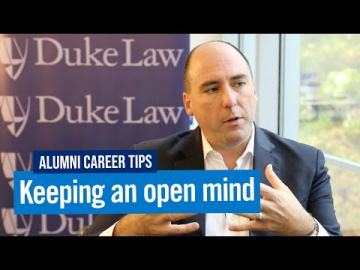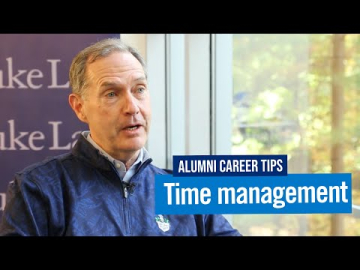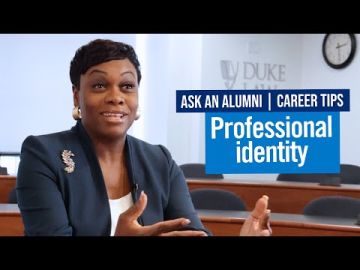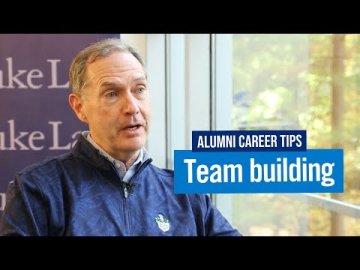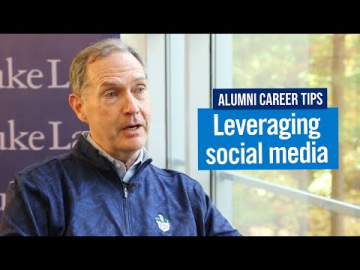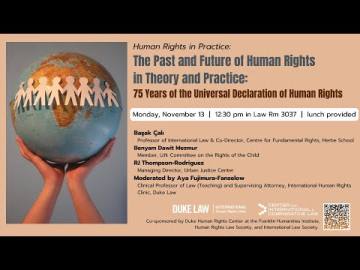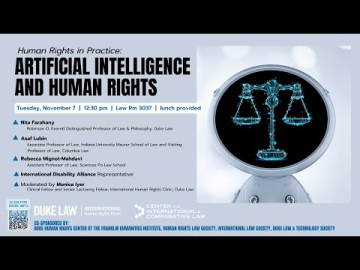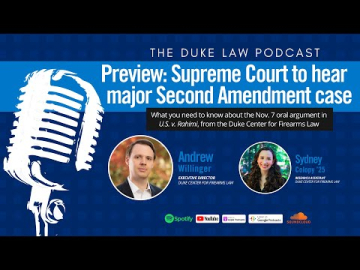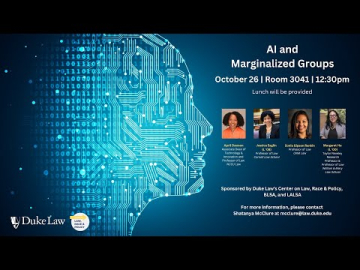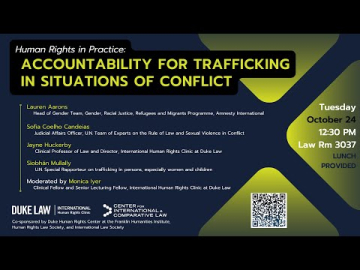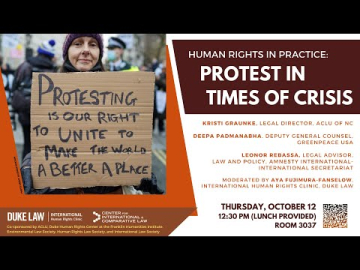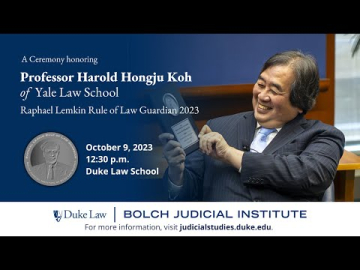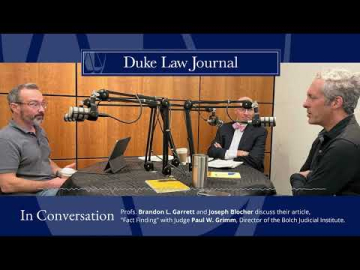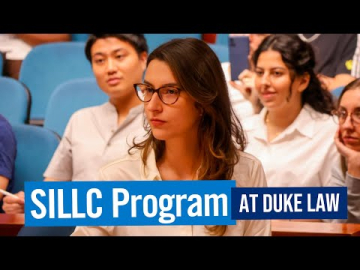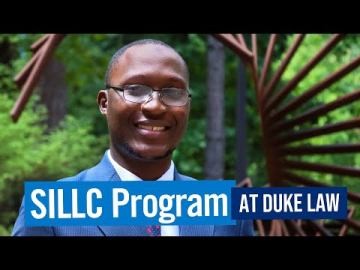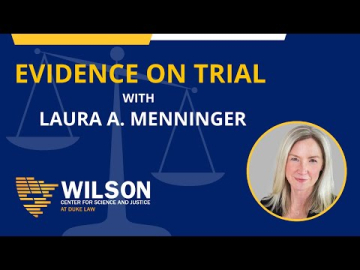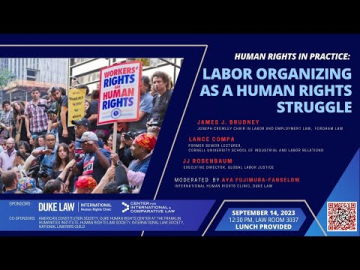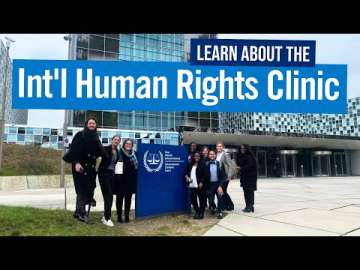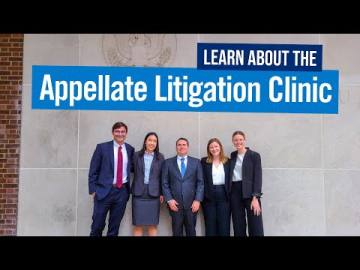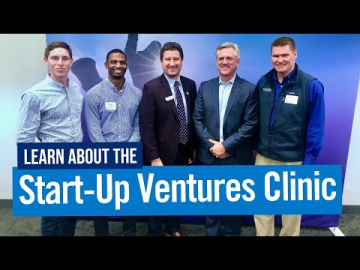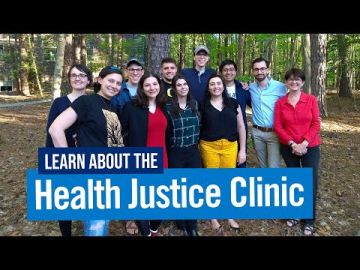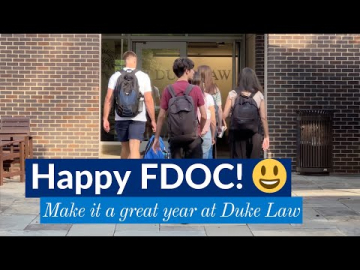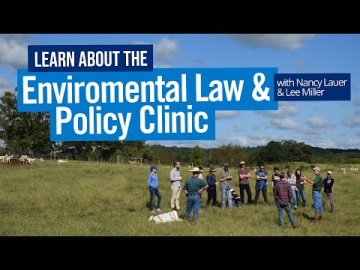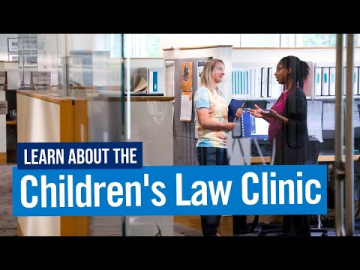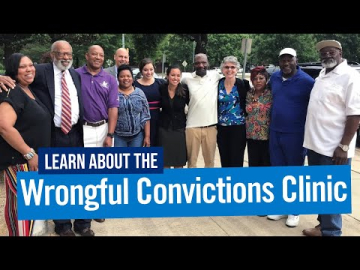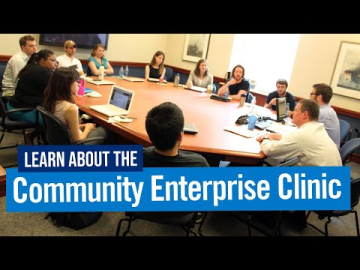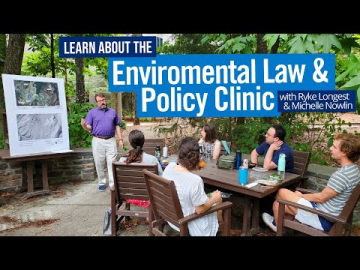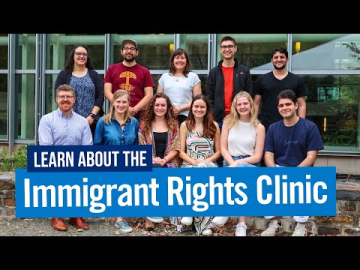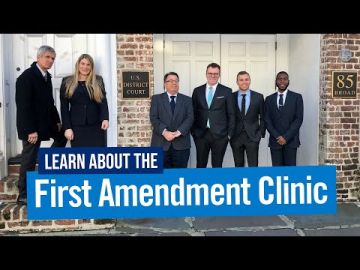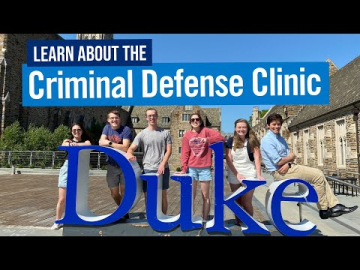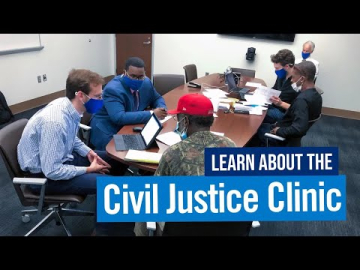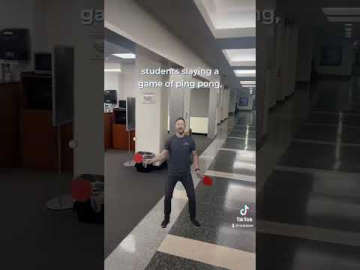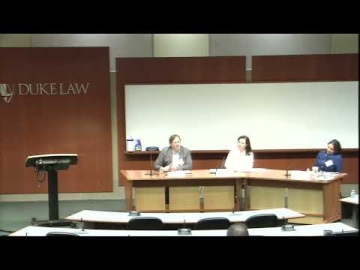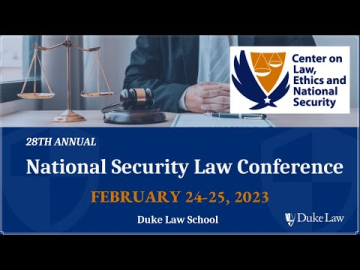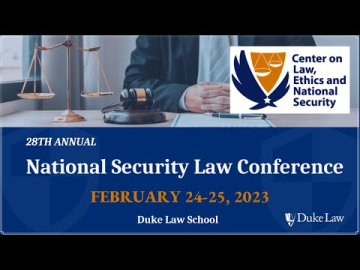Happy Public Domain Day 2024 from Duke Law School's Center for the Study of the Public Domain. To read more about the public domain, visit https://web.law.duke.edu/cspd/publicdomainday/2024.
Mega Menu
Skip menu to main content
- Overview
- Info for:
- Apply
- Study
- Faculty & Research
- Life at Duke Law
- Careers
- About
- Alumni
- Overview
- Juris Doctor
- International LLM
- Master of Judicial Studies
- Dual Degrees
- SJD
- Areas of Focus
- Public Interest & Pro Bono
- Summer Institutes
- PreLaw Fellowship Program
- Visit
- Admissions Contact
- Overview
- Academic Advising
- Academic Calendar
- Course Browser
- Degree Requirements
- Clinics and Externships
- Legal Writing
- Wintersession
- Study Abroad
- Registration Portal
- Staff
- Overview
- Faculty Profiles
- Scholarship
- Visiting Assistant Professor Program
- Centers
- Faculty Workshops
- Teaching & Learning
- Overview
- Student Resources
- Student Organizations
- Diversity, Equity, and Inclusion
- Public Interest & Pro Bono
- Student Events
- LEAD Week
- Graduation
- Overview
- Administration
- Faculty & Staff Directory
- Facilities
- Consumer Information (ABA Required Disclosures)
- A History of Duke Law School
- Durham: The Bull City
- Visiting Duke Law
- Rules & Policies
- Overview
- News & Events
- Engage
- Giving
- Reunion
- Alumni Benefits
- Update Your Address
- Event Refund Policy
- Staff
- Faculty & Staff Directory
- Event Calendar
- Goodson Law Library
- News
- Technology
- Consumer Information (ABA Required Disclosures)
210 Science Drive | Durham, NC 27708 | 919-613-7006
